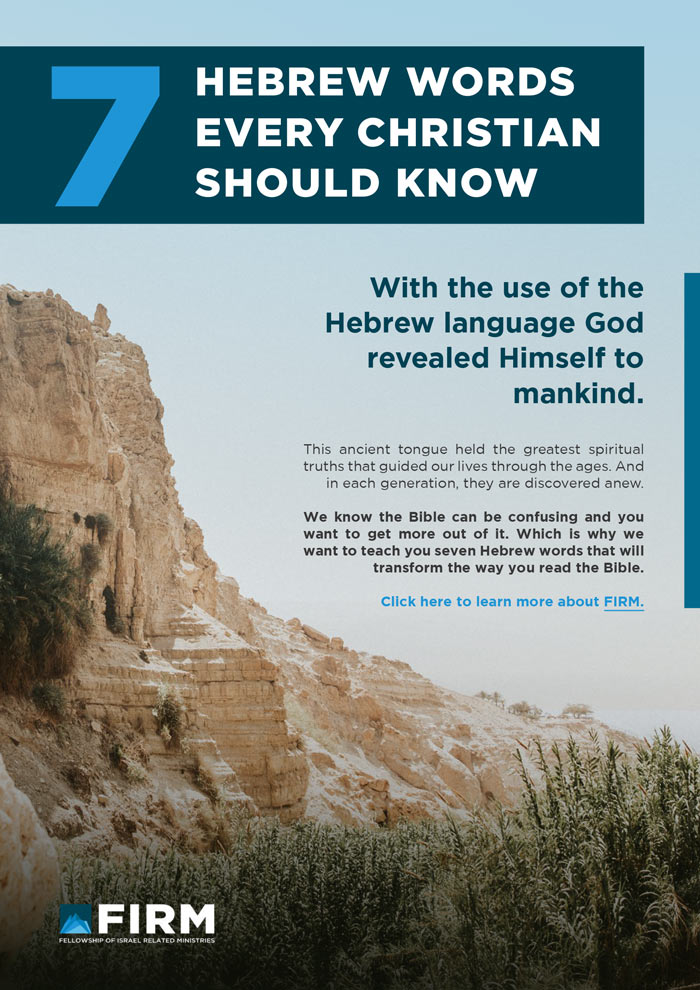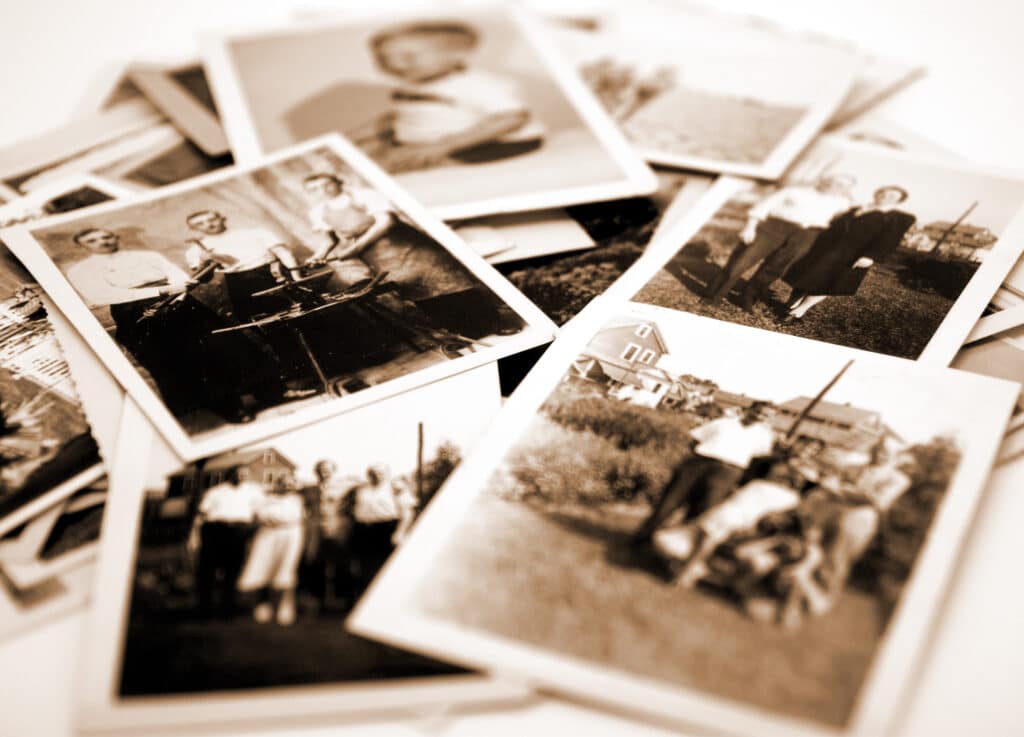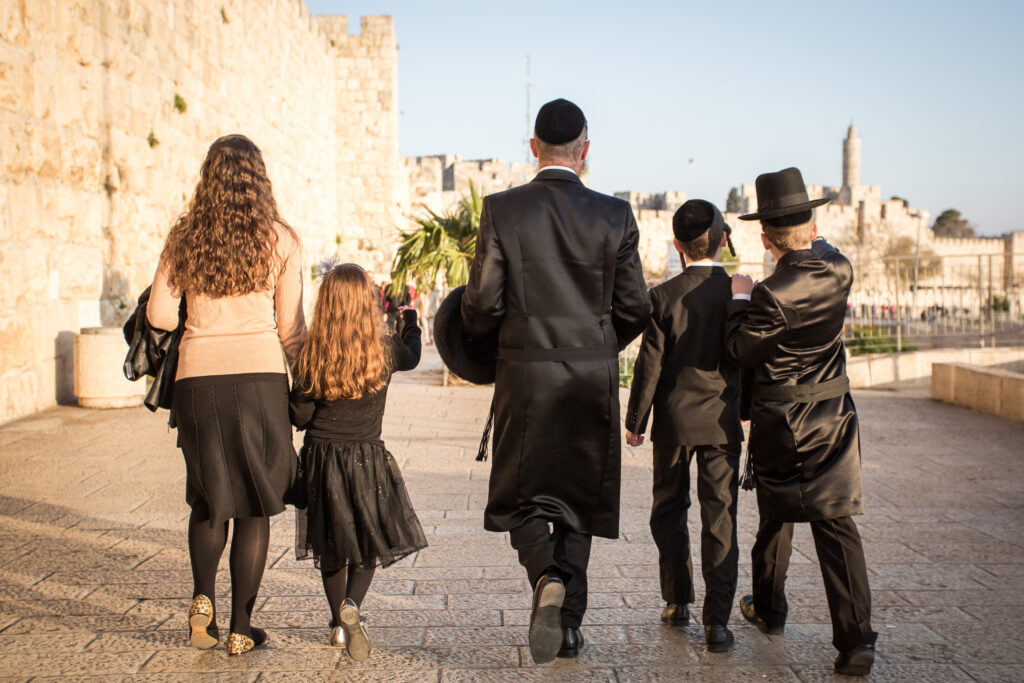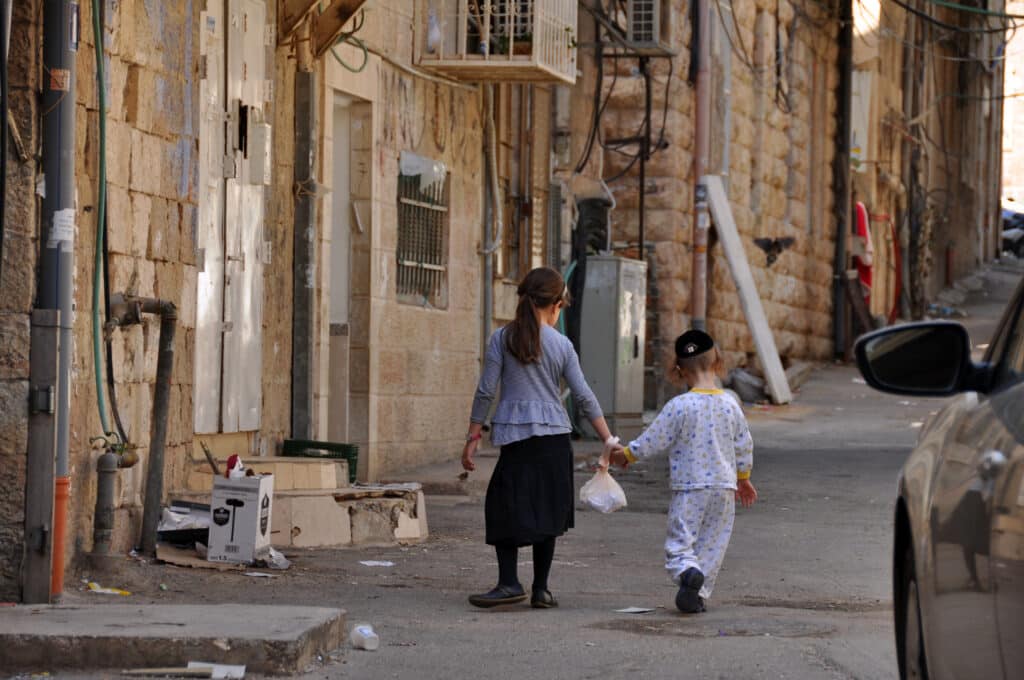Family in the Hebrew Bible
The Hebrew word for family, both in the Bible and in modern Hebrew, is mishpacha. But just like in English, mishpacha means much more than your immediate relatives by blood. It can refer to a clan, and even those bound by the same faith or lineage.
Thinking of family can evoke warm memories, like the ones of gathering over special moments. Or even the everyday things that are made better by those who have known you since day one.
The Nuances of Family
But the idea of family can also evoke pain. One can associate it with broken promises, divorce, infidelity, sibling rivalry, conflict, birth and inheritance disputes.
Some of us have known familial bliss, while other might have experienced great brokenness. Meanwhile, the great majority of us know of something in between. Coincidentally, the family picture the Bible paints, is for the most part, also as the “in between.” There is love, sacrifice, but also jealousy and betrayal.
A Biblical Family Portrait
Biblical family examples offer us a rich portrait of what one can look like. But what did God intend to communicate to us through the idea of family?
The first thing to remember, as we discover the depth of the Hebrew meaning of mishpacha, is that God is its founder and its biggest advocate. He established the first relationship with man and encouraged man to have a relationship with someone else. He wanted two people to start a family.
The First Family on Earth
In Adam and Eve, we see the first marriage and the first human family in the Bible. God walked together with them in the garden (Genesis 3:8). God was not content with creation itself but wanted Adam and Eve – and their descendants – to fill the earth and multiply.
Adam and Eve, as a man and a woman, are unified in a covenant. Adam and Eve are both human and made in God’s image, but they are radically different from one another in their “otherness”. And yet, they become one.
Family and Marriage and God
God created marriage and family so that they would bring glory to Him. How? This first mishpacha in the Bible is a great reminder of that. They had a relationship with each other but were still dependent on God. And growing their family meant obeying God!
And when God decided to cut a covenant with mankind, He did so with a man and His family. Yes, the cutting of the animals happens just in the presence of God and Abraham. Although one could argue that since Abraham slept through it, the covenant was all God.
But God’s promises to Abraham were strongly linked to Abraham’s wife Sarah, their son Isaac with his family, and even their grandson Jacob with his family. This family in the Bible would pass on the great calling of God.
All Families Blessed through One
God made this great promise to Abraham (at that point called Abram), recorded in Genesis 12:1-3:
“Go forth from your country, and from your relatives, and from your father’s house, to the land which I will show you; I will make you a great nation, and I will bless you, and make your name great; and so you shall be a blessing; and I will bless those who bless you, and the one who curses you I will curse. and in you all the families of the earth will be blessed.”
Abraham is commanded to leave his familiar surroundings, the land of his kin, and venture out into the unknown land. He doesn’t know his destination, trusting that the Lord will show him the land.
He is promised that his descendants would outnumber the stars in the sky (Genesis 15:5). It takes years before this promise is fulfilled, and not without problems either. Because of Sarah’s schemes, Abraham first fathers Ishmael with her maid, Hagar. God promises to care for them. Nevertheless, they are not the recipients of the covenant God made with Abraham.
Passing on the Mishpacha Legacy
It is Abraham’s promised son through Sarah, Isaac, who receives this legacy. Then, he passed it on to his son Jacob.
In Genesis 28:14-15, it appears that God is reiterating the promise He made to Abraham, but this time He gives it to Jacob. The Lord promises him that his descendants will be like the dust of the earth, and all peoples would be blessed through his offspring.
A Family of 12 Tribes
Jacob grows to become a father of twelve tribes of Israel. Through one of them, Judah, the Messiah comes generations later, to bless their family, but also to extend the blessing to all families of the earth.
The narrative of Jacob’s mishpacha does not spare the unvarnished details. Again, we see all sorts of dysfunction—favoritism, rivalry, deception, even attempted murder in this biblical family. And yet, God was faithful to his promise to Abraham. Through his descendants, God saves the world.
The Word Mishpacha in Hebrew Context
Through one Jewish family God blessed all families of the world. But also, the Jewish families spread around the world all on their own as well.
The Jewish people have been a people of diaspora in each generation. Before Abraham received promises from God about the land, he left the country of his fathers and sojourned to a new place.
Jacob and his family sojourned as well, following after his son Joseph who was forced to make Egypt his home. There, the Hebrew families became many. Most of us know the rest of the story – of their flight from Egypt and desert wanderings.
After a significant period in the Promised Land, tragedies forced the Jewish people to flee once again. Two temple destructions, Assyrian and Babylonian captivities, finally the Roman destruction of Jerusalem in 70 A.D. meant the Jews have known what it’s like to be foreigners in strange lands.
Jewish Community and Mishpacha
Unsurprisingly, the Jewish people have a strong sense of community wherever they find themselves. Who isn’t familiar with the shtetl life portrayal of Tevye and his family in the popular “Fiddler on the Roof”? In this small shtetl, everyone knows everyone, and no one is a stranger.
Mishpach-a, or mish-poch-ah in Yiddish, means firstly a family, but can also refer to a wider communal network of friends and acquaintances, shared by a common bond. The Yiddish word lantzsmen also communicates this sentiment.
The latter is commonly used by Eastern European Jewish immigrants in America as a term of endearment, to describe those who came from the same small town or shtetl in the Old Country.
The Jewish Mishpacha Around the World
When Eastern European Jews immigrated to the United States, the sense of mishpochah carried over. Old world connections carried over to the new and many congregated in the Lower East Side of New York City. Most of them lived in close quarters in tenements, apartment buildings with small, close units.
Quarters were so close that neighbors could even hear one another taking off their shoes – one, and then the other. Hence the expression, “Waiting for the next shoe to drop.”
At a time when differences were seen as a threat, antisemitic attitudes were common. It is what encouraged Jewish immigrants to form unions based on trade and skill, such as garment making, baking and culinary skills, not to mention following certain rabbis and teachings.
Variety within the Family
As time passes, it would be a mistake to view all Jewish people and cultures as a monolith. There are many variations based on denomination, locality, language, culture and individual preference. In the same way, it would be a mistake to say that all Christians think the same, act the same, and like the same things.
However, one can’t deny that there is a unique bond when individuals can connect anywhere in the world over their shared traditions and faith. Christians feel a sense of kinship as they travel to different countries and connect with local groups of believers in Jesus.
In a similar sense, most Jewish people will recognize their mishpochah everywhere in the world.
Understanding Family in Hebrew as Community
Genesis 2:18 states, “It is not good for the man to be alone; I will make him a helper suitable for him.”
Readers most often understand this verse from Genesis to reference marriage (rightfully so). But it can also point to other human relationships. God intended for us to be in community with one another, not to be islands unto ourselves. This is the true meaning of family.
Grafted Into the Mishpacha
We know that the Jewish people who descended from Abraham, Isaac and Jacob, are a part of a covenant family. But the Apostle Paul also tells us that gentile believers are grafted in to the wild olive tree of Israel by faith (Romans 11:17-24).
It is through our relationships with one another that we experience the Lord’s mercy, love, grace and forgiveness to us. The Apostle Paul exhorts the believers in Romans 12:1 to love another and be of use to one another,
“For just as we have many members in one body and all the members do not have the same function, so we, who are many, are one body in Christ, and individually members one of another.”
Who is a Part of God’s Family?
So who is a part of God’s family? In Mark 3:33-35, Jesus describes His mishpacha as those who do God’s will. Jesus recognizes that sometimes doing God’s will may displease our family of origin, our peers, or the larger culture.
We know the importance of the commandment, “honor thy mother and thy father”. But we also know that one should not make an idol of their family. It means that if our motivation for anything stems out of fear of man and not God, our priorities need to be reevaluated.
In Ephesians 2:19, Paul says that we are a part of God’s household which is built on the foundation of the apostles and prophets, with Christ as the corner stone. We build it together with one another through the indwelling of the Holy Spirit.
The Power of Biblical Family Ties
The Holy Spirit allows us to be patient and have grace with one another in our failings, to laugh with those who laugh and weep with those who weep—those in our chosen mishpacha. We cannot love through our own strength, and we only love because He first loved us.
“There is no fear in love; but perfect love casts out fear, because fear involves punishment, and the one who fears is not perfected in love. We love, because He first loved us. If someone says, “I love God,” and hates his brother, he is a liar; for the one who does not love his brother whom he has seen, cannot love God whom he has not seen. And this commandment we have from Him, that the one who loves God should love his brother also.
Jesus leaves us with what is now commonly known as the Lord’s prayer in Matthew 6:9-13, Our Father who is in heaven… Jew and Gentile, man or woman, slave or free, we are all under one Father, who created us all and loves us equally.
Even if we have different roles, peace in our differences should make our bond stronger. Forgiving one another and loving our enemies is sacrificial in that we lay down our offenses for the sake of love and unity. In Christ, we are all mishpacha!

7 Hebrew Words Every Christian Should Know: Free PDF Download
With the use of the Hebrew language God revealed Himself to mankind. This ancient tongue held the greatest spiritual truths that guided our lives through the ages. And in each generation, they are discovered anew.
We know the Bible can be hard to understand and you want to get more out of it. Which is why we want to teach you seven Hebrew words that will transform the way you read the Bible.
Articles Related to the Hebrew Meaning of Family
Estimated reading time: 9 minutes



